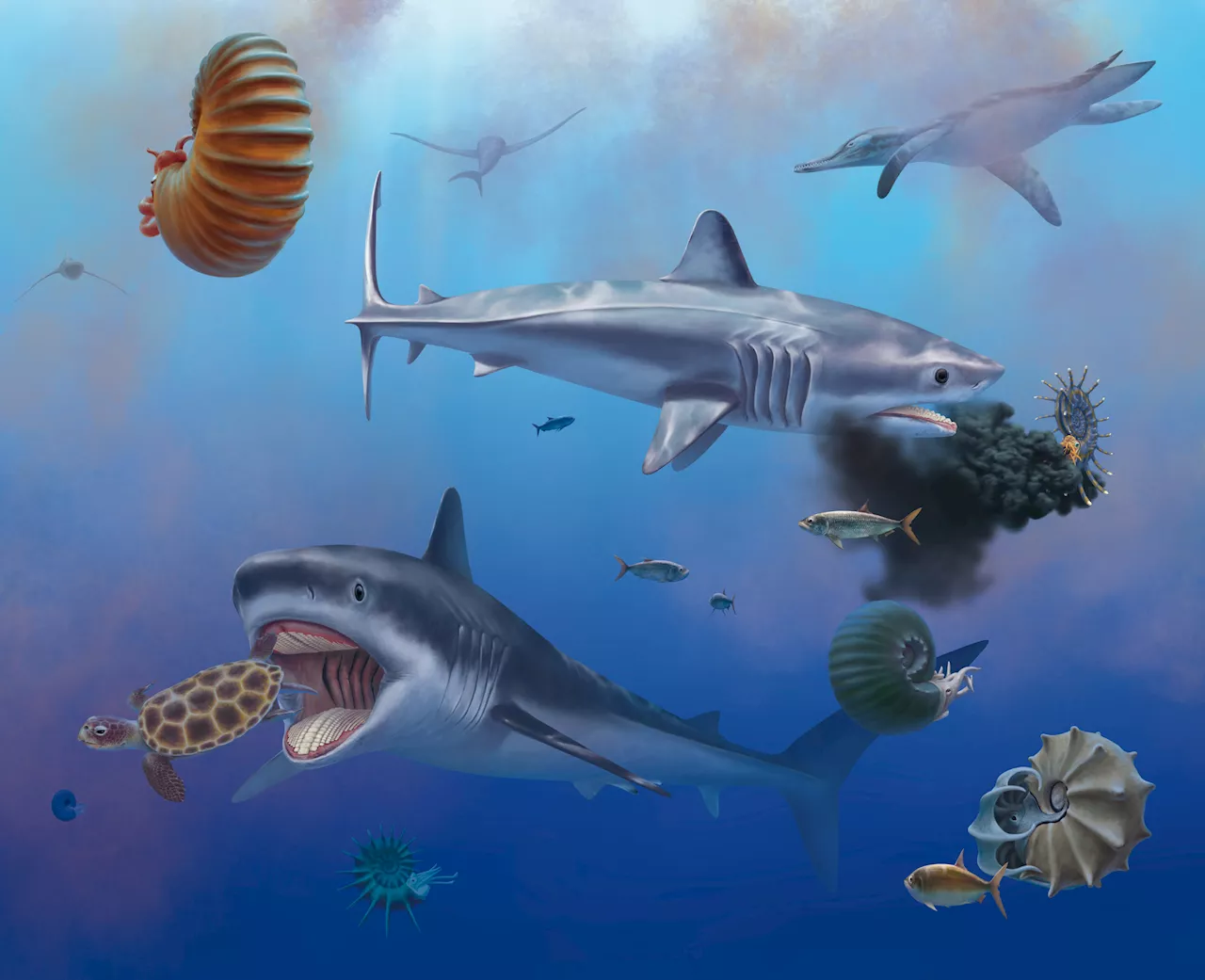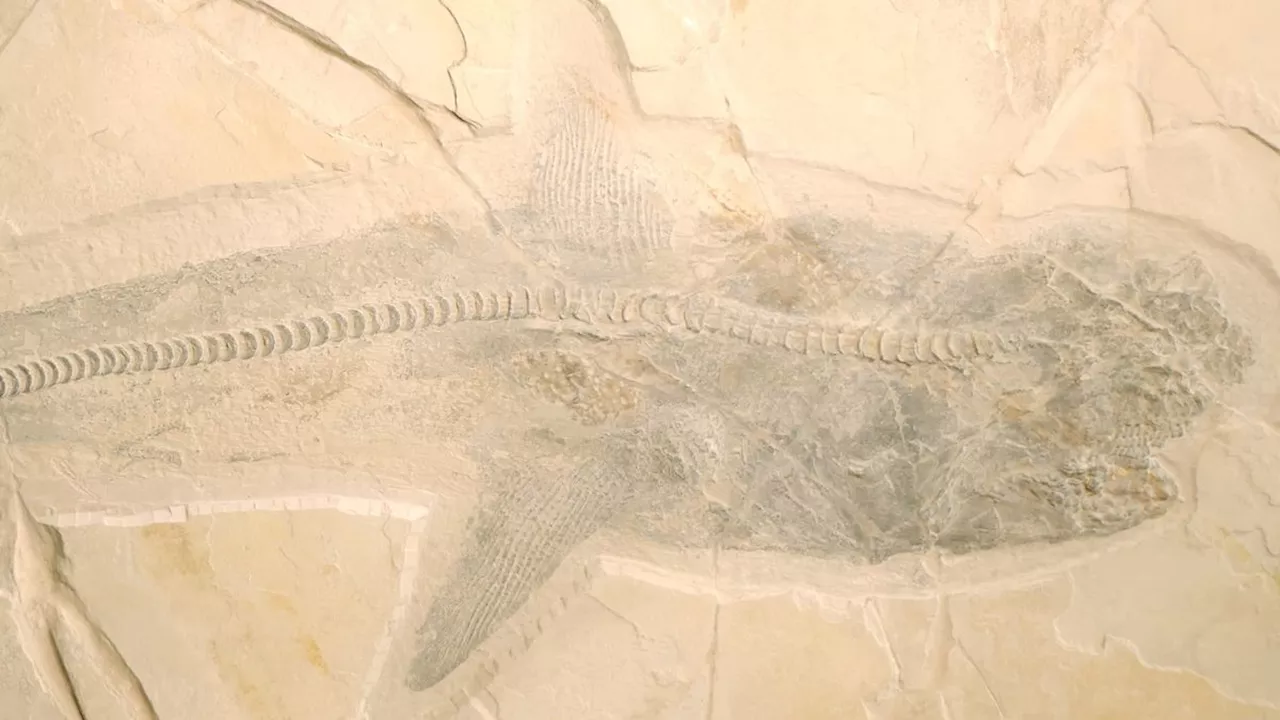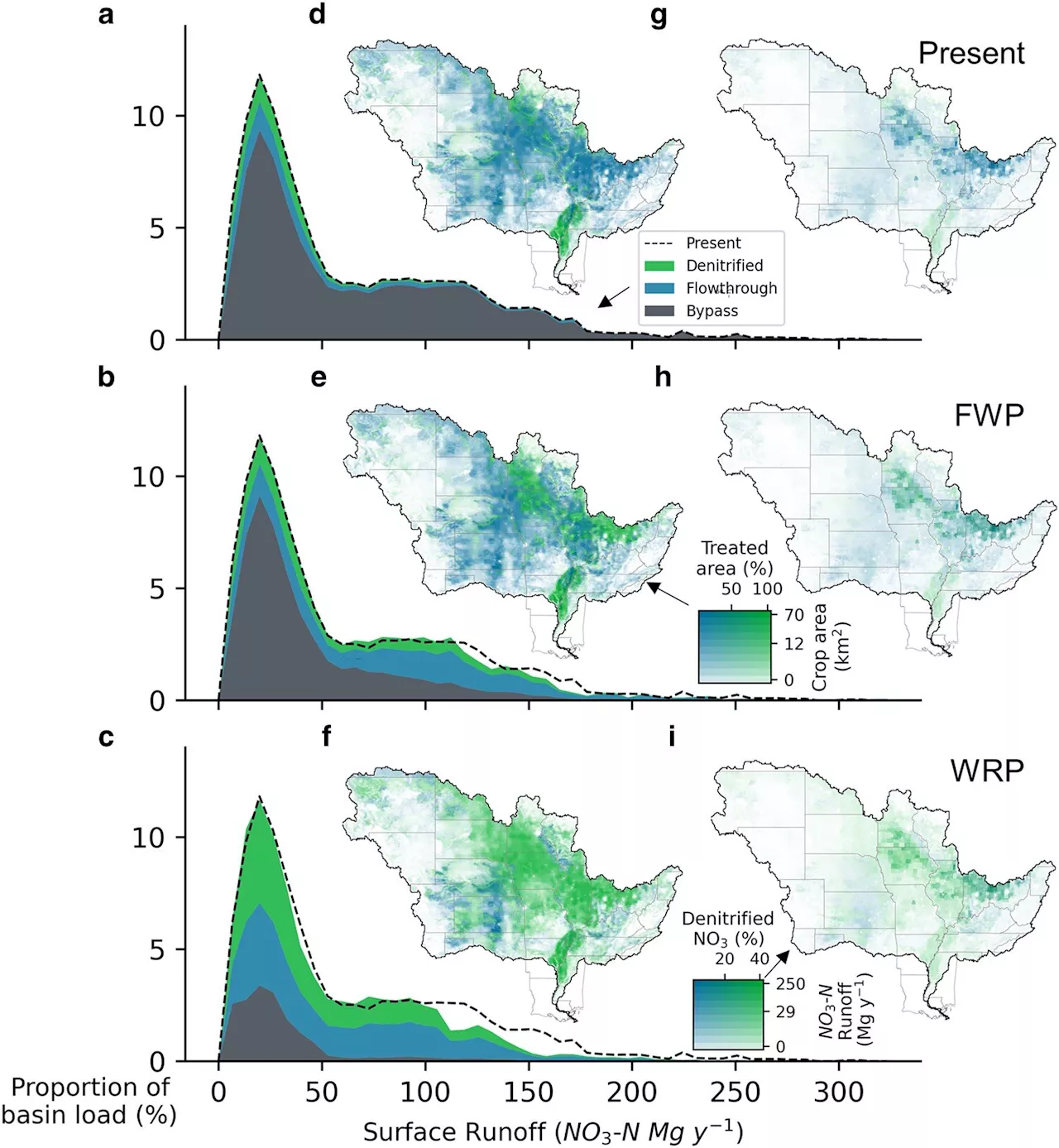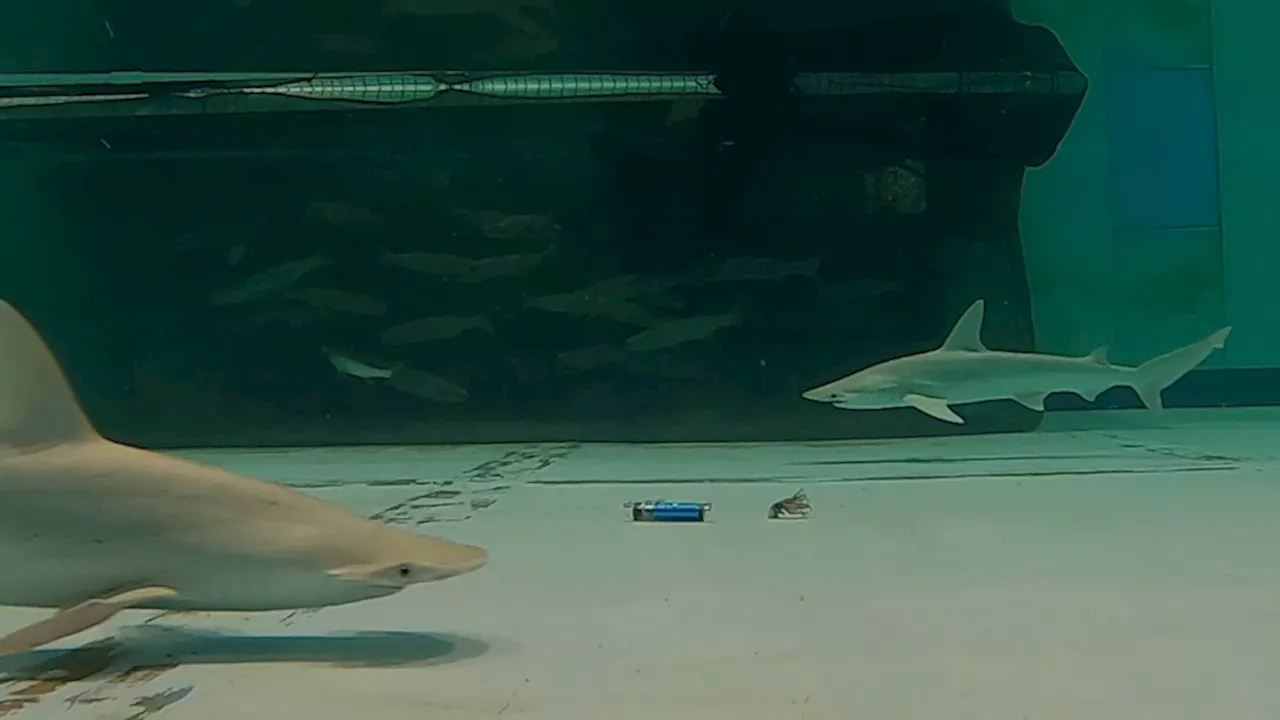Sharks off the Gulf of Mexico are increasingly engaging in depredation.
Shark conservation has been so successful that researchers are finding ways to curb human-shark interactionShark conservation efforts in the last two decades have been so successful that researchers are testing ways to mitigate human-shark conflict as populations continue to rise.
An electrical pulse deterrent called SharkGuard attaches to the fishing line in place of the sinker and sends out shock waves to deter sharks from depredation.The SharkGuard electrical pulse deterrent attaches to the fishing line in place of the sinker, about 10 inches away from the bait. The device sends out shock waves with about the strength of a prank pen, which aggravate the sensitive pores sharks have to detect prey.
Every quarter, researchers venture into the Gulf of Mexico to tag sharks in an effort to understand better the rate of population rise.When the device is placed in the tank, it both delays and deters the sharks from attempting to get the bait, Chapman said. After the initial shock, the sharks sometimes won't take the bait at all and will "sulk" at the end of the tank, Chapman said.
So far, the researchers have tested small hammerhead and bonnet head sharks. But they are aiming to test a wider variety of species, including sandbar sharks, which are known to steal fish, Chapman said.MORE: As tiger populations increase, so do conflicts with humans
United States Latest News, United States Headlines
Similar News:You can also read news stories similar to this one that we have collected from other news sources.
 Exceptionally well-preserved shark fossils from the time of the dinosaurs identified in MexicoAn international team of archaeologists, paleontologists, evolutionists and geoscientists has analyzed ancient shark fossils from the time of the dinosaurs that were recently unearthed in Mexico.
Exceptionally well-preserved shark fossils from the time of the dinosaurs identified in MexicoAn international team of archaeologists, paleontologists, evolutionists and geoscientists has analyzed ancient shark fossils from the time of the dinosaurs that were recently unearthed in Mexico.
Read more »
 Ancient, 30-foot ancestor of great white shark unearthed in Mexico quarryMelissa Hobson is a freelance writer who specializes in marine science, conservation and sustainability, and particularly loves writing about the bizarre behaviors of marine creatures. Melissa has worked for several marine conservation organizations where she soaked up their knowledge and passion for protecting the ocean.
Ancient, 30-foot ancestor of great white shark unearthed in Mexico quarryMelissa Hobson is a freelance writer who specializes in marine science, conservation and sustainability, and particularly loves writing about the bizarre behaviors of marine creatures. Melissa has worked for several marine conservation organizations where she soaked up their knowledge and passion for protecting the ocean.
Read more »
 Fourteen years after the Gulf of Mexico oil spill, endemic fishes face an uncertain futureThe 2010 Gulf of Mexico Deepwater Horizon oil spill, the largest accidental spill in history, released almost 100 million gallons of oil, causing significant pollution. A decade later, its long-term effects remain unclear.
Fourteen years after the Gulf of Mexico oil spill, endemic fishes face an uncertain futureThe 2010 Gulf of Mexico Deepwater Horizon oil spill, the largest accidental spill in history, released almost 100 million gallons of oil, causing significant pollution. A decade later, its long-term effects remain unclear.
Read more »
 Fourteen years after the Gulf of Mexico oil spill, endemic fishes face an uncertain futureThe 2010 Gulf of Mexico Deepwater Horizon was the largest accidental oil spill in history. With almost 100 million gallons (379 million liters) of oil combined with dispersants suggested to remain in the Gulf, it is one of the worst pollution events ever. More than a decade later, its long-term effects are still not fully understood.
Fourteen years after the Gulf of Mexico oil spill, endemic fishes face an uncertain futureThe 2010 Gulf of Mexico Deepwater Horizon was the largest accidental oil spill in history. With almost 100 million gallons (379 million liters) of oil combined with dispersants suggested to remain in the Gulf, it is one of the worst pollution events ever. More than a decade later, its long-term effects are still not fully understood.
Read more »
 Field-margin wetlands alone can't fix the Gulf of Mexico's dead zone, say researchersEach summer, a hypoxic dead zone forms in the Gulf of Mexico, making some marine habitats unlivable. The dead zone is caused by nutrients—primarily from agricultural fertilizers—flowing into the Gulf from the Mississippi River.
Field-margin wetlands alone can't fix the Gulf of Mexico's dead zone, say researchersEach summer, a hypoxic dead zone forms in the Gulf of Mexico, making some marine habitats unlivable. The dead zone is caused by nutrients—primarily from agricultural fertilizers—flowing into the Gulf from the Mississippi River.
Read more »
 Former college football player rescued by Coast Guard after going missing in Gulf of Mexico'I was just kind of in survival mode,' Smelley told ABC News.
Former college football player rescued by Coast Guard after going missing in Gulf of Mexico'I was just kind of in survival mode,' Smelley told ABC News.
Read more »
